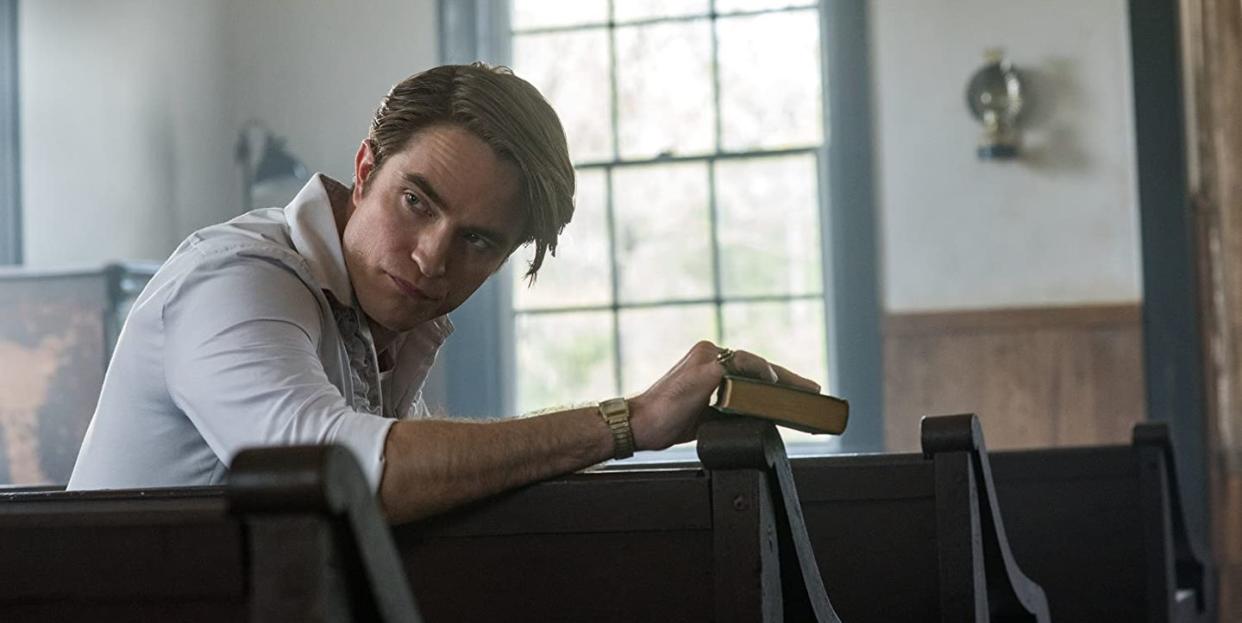‘The Devil All the Time’ Chose the Perfect Voice as Its Narrator

The first voice we hear in Netflix's new film The Devil All The Time is one native to Ohio, and also just about the only accent in director Antonio Campos' film that isn’t fake: the narrator. The film is an adaptation of the Donald Ray Pollock debut 2011 novel of the same. And the narrator of the film version is Donald Ray Pollock himself.
Though the screenplay for The Devil All the Time was written by Antonio and Paulo Campos, many of the lines read by Pollock come from the novel.
The novel is notable for its the measured, abruptly brutal prose—and its godly narrator who mines every thought from every character across time. The style makes for a unique entry into the called “southern gothic” form, a genre of American literature set in the South and chronicling family relations, generational consequences, and, usually, extreme violence.
Pollock only began writing when he was 45. He is now 66. He grew up in Knockemstiff, Ohio and quit school at 17. He worked for 30 years at a local paper mill, before his own father retired from the same job. Pollock decided he needed to spend the remainder of his own life doing something else, and so he started writing.
Pollock said he honed his craft by typing out stories from other authors—John Cheever, Hemingway, Flannery O'Connor, Richard Yates. Eventually, he began writing short stories, which he then published in a collection. His first novel was Devil All the Time, which released to critical praise.
Early into production, Paulo Campos became interested in casting Pollock to do the voice over. As he told Vanity Fair, “His voice is very powerful. We needed a narrator to guide us, to connect all these pieces and give us a sense that there is something bigger at play here. It had to be Don.”

Given its array of characters, timelines, and backstories, the novel would prove challenging to adapt. Pollock’s connection to the project would help confer some legitimacy to the adaptation, though we prefer the prose of the novel to the cross cutting of the film.
If anything, hearing Pollock’s voice makes us wish he would just read the entire thing to us. Here’s hoping for Pollock-read audiobook soon.
You Might Also Like

